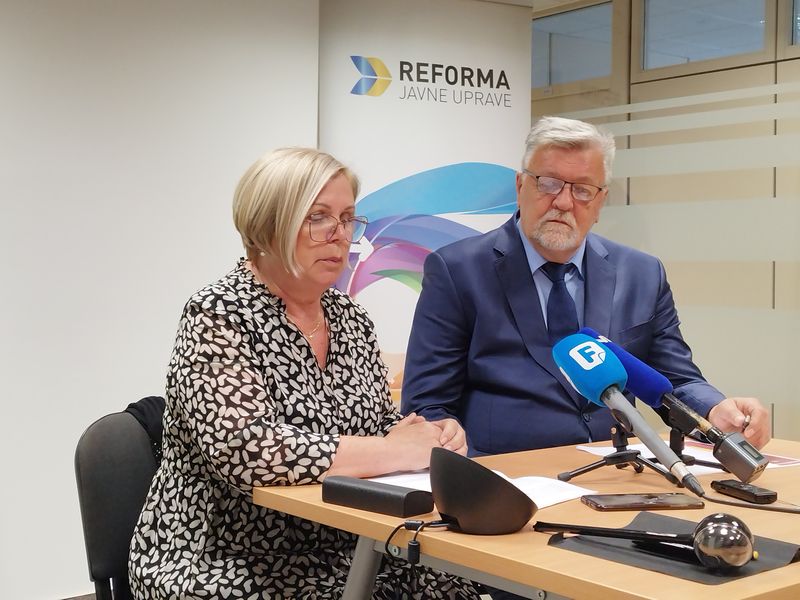
Previous research shows that public institutions in Bosnia and Herzegovina have taken a significant step towards transparent and responsible public administration. Nevertheless, it is necessary to work even more intensively and systematically on the promotion of standards and principles of proactive transparency, with maximum engagement of all relevant actors, including public institutions, civil society, donors, media and citizens in general.
This was said today in Sarajevo by the director of the Agency for Statistics in BiH, Vesna Ćužić, during the presentation of findings from research on the transparency of BiH institutions.
This is the fifth survey on the fulfillment of proactive transparency standards, after the BiH Council of Ministers adopted the Proactive Transparency Policy and Standards in December 2018 and tasked BiH institutions for implementing them.
Ćužić stated that the results of five online surveys show that the response of institutions is increasing, and the survey results are getting better.
According to her, 44 institutions participated in the first survey, with 63.52 percent compliance with the Standard. This number increased significantly in the second survey, where 58 institutions participated with 64.34 percent compliance with the Standard.
“The third online survey was conducted with 62 institutions, with a compliance rate of 67.57 percent. 55 institutions participated in the fourth survey, while 65 institutions participated in the fifth survey. According to the fifth survey, the average fulfillment of the standard of proactive transparency is 72.27 percent, which represents an improvement compared to the year 2022, when the fulfillment of the standard was 68.23 percent,” said Ćužić.
She expressed satisfaction with the fact that the number of institutions participating in the research is increasing.
She noted that, in accordance with the conclusion of the Council of Ministers of BiH from 2022, the institutions of BiH are obliged to adopt internal acts – regulations on the proactive publication of information of public interest. According to the submitted data, out of 65 institutions, 30 of them have adopted internal acts, while some institutions are currently working on drafting those documents, and some have already been drafted, but are not yet available on their websites.
Coordinator for Public Administration Reform Dragan Ćuzulan pointed out that the right to access information is a basic human right protected by international documents and acts. However, public administration in Bosnia and Herzegovina often prevents citizens from gaining that right.
“It is absurd that every day we make decisions that affect the lives of our citizens, many of them shape our future in the long term, without them knowing how we work, what decisions we make and how much money we spend on it. This is just one of the reasons why the public’s trust in our work decreases year by year. This practice must be changed”, believes Ćuzulan.
Speaking about the results of the research, he said that 80 institutions were included, and of this number, 65 institutions provided answers to all 38 questions.
According to him, 53 institutions met 50 percent of the standards, and 27 of them more than 80 percent.
He noted that until this year, institutions that fully met the standards in addition to the Public Administration Reform Coordinator’s Office and the Agency for Statistics of Bosnia and Herzegovina, are the Directorate for European Integration and the Agency for Higher Education and Quality Assurance, and from this year also two more institutions – the Agency for Police support of BiH and the Agency for Gender Equality.
“These six institutions have published all data and information of public importance, from the contacts of employees, to the total incomes of the managers of these institutions and all civil servants and state employees,” said Ćuzulan.
He added that the biggest step forward in the publication of information compared to last year was made by: the Agency for the Protection of Personal Data of BiH, the Ministry of Human Rights and Refugees of BiH, the Agency for Public Procurement, the Central Harmonization Unit of the Ministry of Finance and Treasury, the Center for Information and Recognition of Documents from the field of higher education in BiH and the Directorate for Economic Planning.
“Although there is progress in the publication of data, the institutions of Bosnia and Herzegovina still keep certain types of information away from the public eye,” Ćuzulan concluded.
